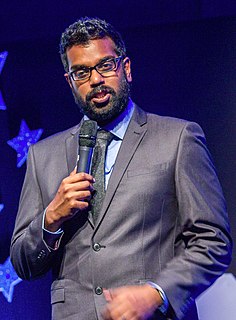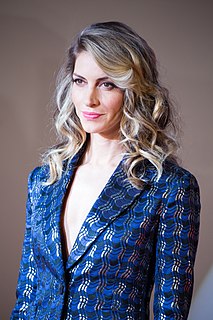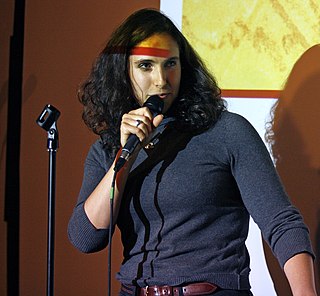A Quote by Romesh Ranganathan
When you spend your day writing comedy, particularly with others, the discussion of jokes and how far to push things with a group of unoffendable colleagues means that your grasp of what is acceptable in normal conversation is often skewed.
Related Quotes
Most of the jokes that I wrote were funny and there always seems to be an aspect of comedy in my long-form work. I think that's how life is. I think even the more dramatic moments of one's life are often punctuated by very funny comments or situations. I like to say, "Keep your comedy serious and your drama funny, and you'll be pretty true to life."
And writing comedy and it really taught me how to kind of like craft jokes, it sounds like weird but really focus on crafting jokes and trying to make the writing really sharp. At the same time I did improv comedy in college, and that helped with understanding the performance aspect of comedy, you know, because it's different when you improv something vs. when you write it and they're both kind of part of my process now.
Tweeting is a great way to practice writing jokes, but there is so much more to comedy writing than just jokes. Jokes are a necessity, but you also have to learn how to write characters, to break a story, to keep coherence between episodes. I've learned more by being a TV writer than I ever could've on my own.
'Particularly' is particularly difficult because the 'L' and the 'R' are totally different, like totally different letters. I would spend hours in front of the mirror with my dialect coach to observe my tongue. You don't think, when you speak, about all the things that happen in your jaw and your mouth, how everything reacts, so you have to watch all those things and realise we have a totally different use of our tongue and jaws.
I always get a headache the first time I watch a movie I'm in. Because you're staring at the screen so hard, your brain is doing all this work trying to put things in context of what the day-to-day experience of making it was. And the timeline that's in your head of when it was made, and on what day, how you felt. And then you're also trying to grasp what it's been edited into.
The only way to maximize group creativity—to make the whole more than the sum of its parts—is to encourage a candid discussion of mistakes. In part, this is because the acceptance of error reduces cost. When you believe your flaws will be quickly corrected by the group, you're less worried about perfecting your contribution, which leads to a more candid conversation. We can only get it right when we talk about what we got wrong.
Not just any talk is conversation; not any talk raises consciousness. Good conversation has an edge: it opens your eyes to something, quickens your ears. And good conversation reverberates: it keeps on talking in your mind later in the day; the next day, you find yourself still conversing with what was said. That reverberation afterward is the very raising of consciousness; your mind's been moved. You are at another level with your reflections.
I could give you absolutely sterling advice on how to avoid writing, how when you run out of things to do other than going to your desk and writing, when every closet is reorganized and you've called your oldest living relative twice in one day to see what she's up to and there isn't an unanswered e-mail left on your computer or you simply can't bear to answer another one and there is no dignity, not a drop left, in any further evasion of the task at hand, namely writing, well, you can always ask your dentist for a root canal or have an accident in the bathtub instead.


































